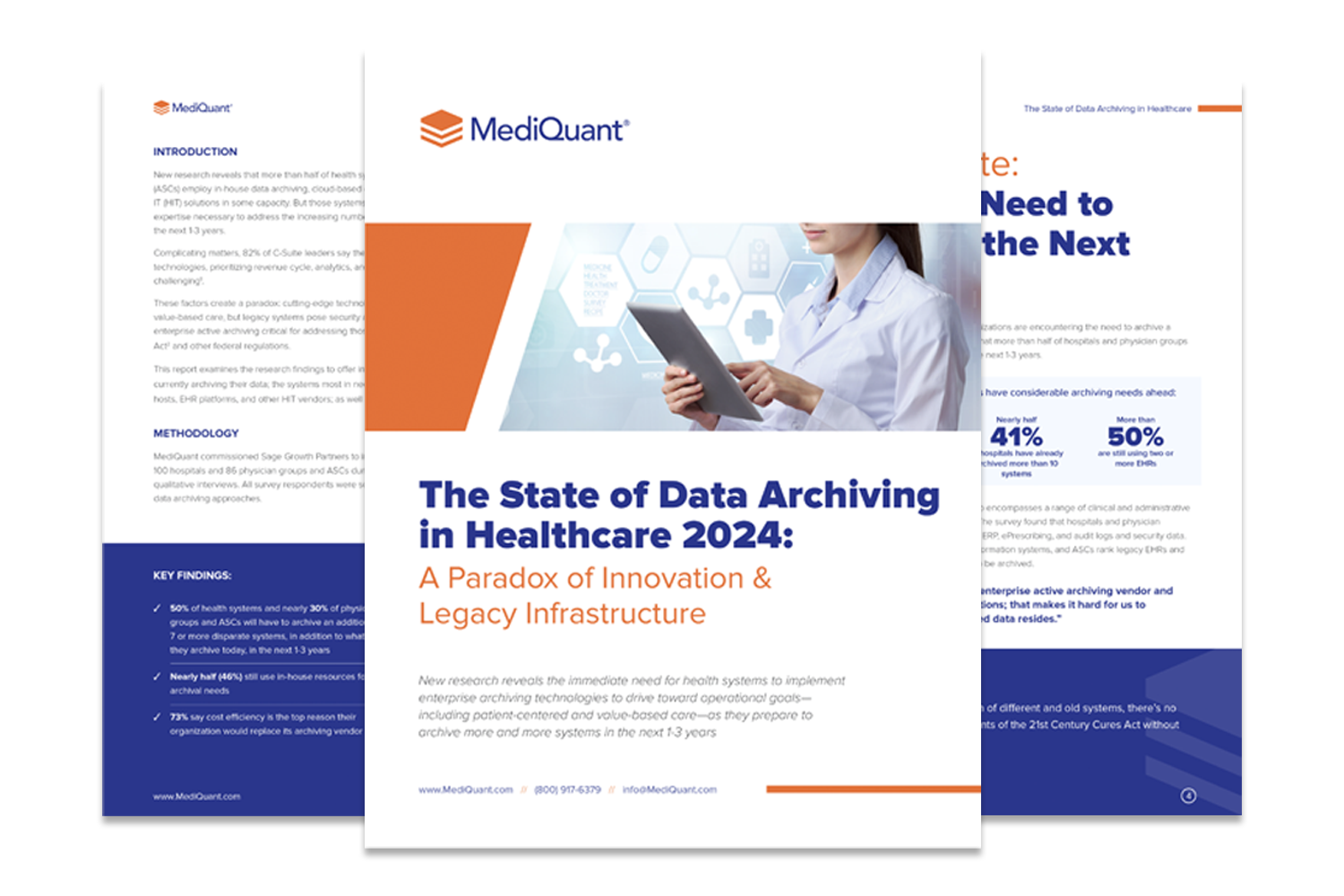With the explosive growth in patient data and increase in hospital consolidations and health information exchange, mistakes in patient identification continue to plague hospitals and health systems.
Part of the problem is that many organizations are running multiple, disparate legacy electronic medical records (EMRs). Consolidating systems via data archiving with eMPI can help cut down on these errors, which can compromise care.
The ECRI Institute, a nonprofit research group that studies patient safety, analyzed 7,613 cases of so called wrong-patient errors at 181 healthcare organizations from January 2013 to July 2015. Nine percent of patients or about 685 people were harmed, including two fatalities. 1
MPI, eMPI, and EMR Archive Considerations
Many hospitals and health systems employ MPIs (Master Patient Indexes) or eMPIs (Enterprise Master Patient Indexes) that use match engines along with referential matching to identify duplicate records. While the terms are often used interchangeably, eMPI refers to an MPI used by all software applications across an entire “enterprise,” which is ideal.
The issue is that when organizations transition to a new EMR, they often leave the legacy system running. They do this for several reasons, including patient care continuity, accounting and compliance. Many do this more than once.
Not only does this practice incur extra fees and staff time to keep the legacy systems running, but it is also a recipe for errors. For example, one patient can be in three different systems with three different identifiers along with three variations of their name – Ann Smith, Ann E. Smith and Annie Smith. Alternatively, there could be one patient identifier for two or more persons, when, for example, there are multiple patients with the same name and date of birth and other matching demographic data.
Patient records, including archived ones, are accessed by hospital staff for many purposes, including patient care and billing and to release information to external parties such as healthcare providers, insurance companies or attorneys. At the very least, mistakes in identification can result in hospital staff frustration, lost time and errors, and HIPAA and regulatory infractions. But at the very worst, they can inadvertently compromise patient care, leading to duplicate tests, incorrect diagnoses and treatments –even injury.
Syncing Systems With a Healthcare Active Archive
There is a better way to help hospitals protect and care for their patients and save time, money and their reputations in the process. Legacy EMRs can be consolidated into one active archive that links to the current EMR and most importantly, ensures that there is one unique identifier for each patient across the enterprise or eMPI. This is accomplished by special software that retrieves, matches, and links the legacy data within and across different legacy systems, connecting it to the current EMR and supporting system-wide, point-of-care retrieval of the right information for the right patient.
The ideal time to adopt an eMPI archiving strategy that spans across current and legacy EMRs is when an organization is planning its move to a new EMR and/or considering its archiving options, especially if it has multiple legacy systems. Advance planning will help organizations not only choose the right vendor but ensure that all data in all systems is taken into account, including HR, Finance, Payroll, etc.
Partner With an EMR Conversion Expert
The implications of an eMPI archiving approach are far reaching. It is a pathway to improved organization, reduced expenses and most importantly, seamless patient care and improved outcomes. And you can’t put a price on that.
Call MediQuant at 844.286.8683 today to schedule a free consultation. Get in touch with us or book a free demo of our EMR conversion and healthcare active archive solutions.
Letha E. Stewart, MA, RHIA, PMO Lead Project Manager, MediQuant, has more than 30 years’ experience in the healthcare field, having held management positions in hospital emergency, radiology, and health information management. She has dedicated 20 years as an eMPI/MPI software consultant and currently helps customers link and archive legacy records.


